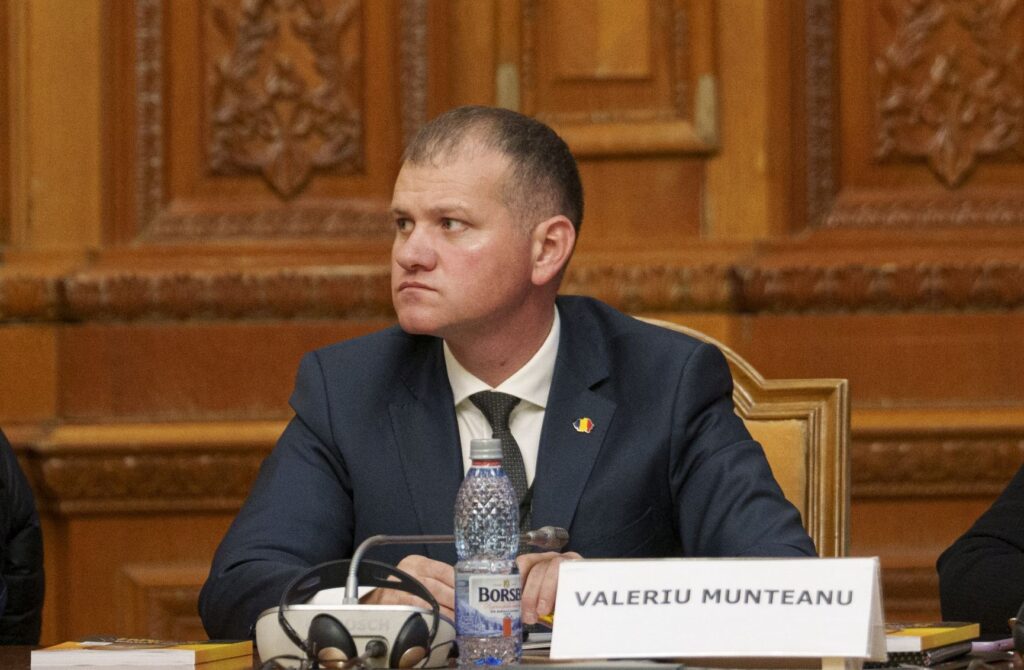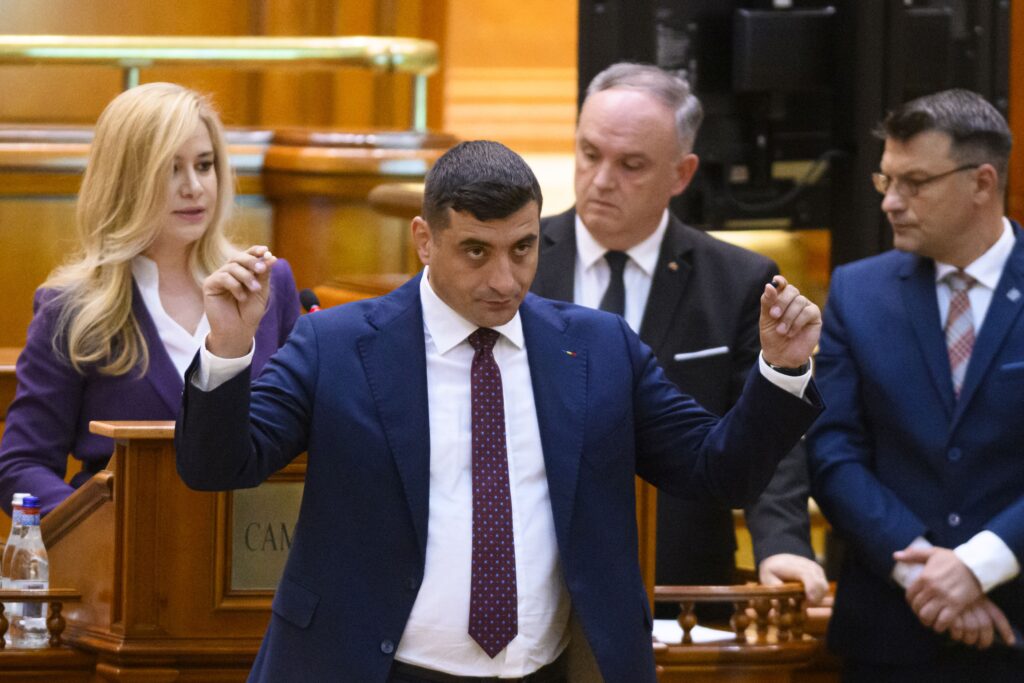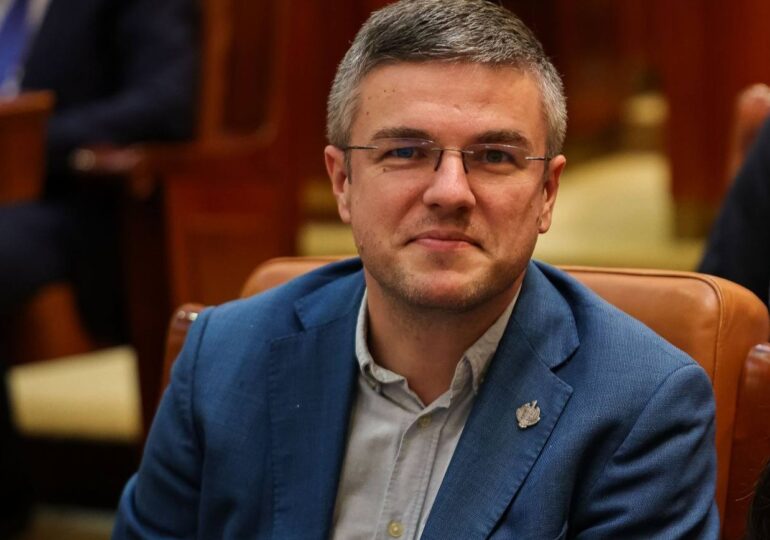In the context of the hybrid warfare conducted by Russia and the rise of extremism in Romania, Senator Irineu Darău spoke to us about the vulnerabilities of national security, the dangerous symbolism of appointing extremists to sensitive positions, the lack of effective mechanisms against disinformation, and the risk that future elections could be catastrophic for pro-Europeans.
Representative quotes:
"The fact that an AUR deputy leads the joint committee for the European integration of the Republic of Moldova is not just a procedural mistake, but a devastating signal. We are talking about an anti-European party, led by a leader banned in Chișinău, and through this appointment, Romania conveys that symbolism does not matter, when in fact it is essential in diplomacy."
"We have lived in Parliament years where extremists were allowed to monologue undisturbed, uttering xenophobic and even neo-Nazi messages, because many politicians believed they were not worth countering. This strategy of ignorance is dangerous: through it, extremism has gained visibility and legitimacy."
"Hybrid warfare is not won or lost in a day, but gradually erodes democracies. If in 2028 we will have a derailed Parliament, it means that Russia has won a geopolitical battle on this corner of the European map. All these years until then are a continuous battlefield."
"We cannot claim that freedom of expression means the freedom to spread lies that undermine the state. As long as people are trapped in bubbles of disinformation, where they receive the same false messages daily, democracy stands no chance. The state has a duty to find mechanisms through which the truth reaches every citizen."
"The fight against poverty and inequalities is not about ideology, but about the survival of the Romanian state. If a significant part of the population lives in severe deprivation and hopelessness, they become vulnerable to extremist discourses. Combating extreme poverty is, in fact, the most important national security measure."
You have publicly criticized the fact that AUR Deputy Valeriu Munteanu leads the Romania–Republic of Moldova joint committee for European integration. Why is that situation so problematic?
It is a major issue, related to symbolism, the message we convey, and the legitimacy of our institutions. This committee is not just any committee. It has a special status, being a joint body of the Romanian Parliament and that of the Republic of Moldova. Its purpose is to coordinate the steps towards Moldova's European integration, a strategic and sensitive objective for the entire region.
- The spy who shines a light on AUR. New suspicions that party parliamentarians have connections to Russia
- Valeriu Munteanu, AUR deputy, reacts to a Spotmedia article, stating he did not know the spy Bălan. Such information does not appear in the text
In this context, it is completely inappropriate for the presidency of the committee to be held by a representative of AUR, a party declared anti-European and led by a leader who is banned from entering the Republic of Moldova. The fact that Romania accepts such representation sends a devastating signal. It is as if we are saying that it does not matter who represents us in fundamental matters.

Furthermore, Valeriu Munteanu raises serious questions. He has had a convoluted political trajectory, passing through several parties, some unionist, others with controversial positions.
His family has been involved in intelligence services, business, and politics during the oligarch Vlad Plahotniuc's era, a corrupt individual who massively controlled institutions in Moldova. He is not someone who inspires trust in a European integration committee.
Yet, pro-European parties are in the majority in the Romanian Parliament. How have they not succeeded in correcting such a mistake?
Unfortunately, in Romanian politics, there is a very dangerous attitude towards extremism: it is preferred to be ignored. Many politicians, even from the pro-European camp, believe that extremists should not be countered because they would, supposedly, advertise them. This is a mistaken mindset. In reality, by ignoring them, we have allowed them to propagate xenophobic, anti-European, and sometimes even neo-Nazi messages from the parliamentary podium without any opposition.
There is also the issue of negotiating positions. In Parliament, almost all positions are divided according to mathematical algorithms among all parties, regardless of their values: pro-European or anti-European. For this reason, individuals who should not be there end up in sensitive positions. It is an inherited custom that may work in a balanced parliament but becomes dangerous when extremists occupy a significant number of seats.
I believe we need to break this mechanism and establish a quarantine. Extremists should not have access to oversight committees for intelligence services, diplomacy, or institutions that handle sensitive and national security data.
Do you believe this quarantine could be implemented?
Yes, but only if there is real political will. The model already exists in the European Parliament, where, depending on the sensitivity of the issue, there are clear rules that limit the impact of extremists. This does not mean excluding them but rather ensuring they do not have avenues to destabilize institutions.
Here, we have nothing of the sort. The lack of such a mechanism is evidence that Romanian politicians refuse to acknowledge the seriousness of the situation. Positions and roles are still being negotiated as if we were living in a peaceful period without major challenges. In reality, we are in the midst of a hybrid war.
Therefore, I always speak up and try to convince people from all parties, even those who do not share my views, that new rules are needed. We cannot let comfort and inertia block our adaptation to the harsh reality of today.
You mentioned hybrid warfare. What are Romania's vulnerabilities and what should be done urgently?
First and foremost, we must officially acknowledge that Romania is the target of a hybrid war waged by Russia. As long as we do not accept this truth, we will never take the correct measures.
We have three main courses of action:
- Strong and coordinated institutions. Today, each institution does something: CNA, ANCOM, DNSC, but there is no coherent strategy. There must be real collaboration, with clear responsibilities and legal tools adapted to online threats and informational manipulation.
- Tracking obscure funding. In recent electoral campaigns, we have seen sudden appearances of fake pages, massive disinformation campaigns, money from unclear sources. If we do not trace the money trail, Romanian politics risks being bought under the table.
- Partnership with social networks. Today, people are trapped in bubbles of disinformation, where they see the same false message hundreds of times. If the state does not find a way to convey the correct message, society will be manipulated endlessly. Freedom of expression is essential, but it cannot mean the freedom to spread unlimited lies that undermine the state.
What role should CSAT and intelligence services play in this struggle?
CSAT should be the coordination center. We cannot rely solely on a few parliamentarians or ministers to come up with isolated proposals. Clear objectives and precise deadlines must be established.
On the other hand, a painful question must be clarified: how did we reach a point where major threats in the past year were not anticipated? We are talking about an intelligence agency failure, and in a healthy democracy, such a failure has consequences. No one can go without answering. This does not mean witch hunting but taking responsibility and regaining public trust.

Looking ahead to the upcoming parliamentary elections, how great is the risk of Romania being destabilized?
It is very significant. Hybrid warfare does not aim for immediate gains, but to erode democracies in the long term. Every election is a test. If in 2028 the Romanian Parliament is seriously hijacked, it means that Russia has won a geopolitical battle in the region.
Therefore, I believe we need to openly discuss exceptional measures. In France, after a wave of attacks, a state of emergency focused strictly on combating terrorism was established, which prevented further attacks and limited radicalization. Perhaps we should also consider a mechanism of this kind, adapted to the reality of hybrid warfare.
In this context, how strong or how vulnerable is Romanian democracy?
Unfortunately, we have two major vulnerabilities. The first one relates to education and critical thinking. Romanian society is not prepared to differentiate between truth and lies, between information and manipulation. Schools, the media, and the political class must contribute to the formation of critical thinking. People are not malicious, but if they are constantly bombarded with lies, without access to the truth, they end up believing in false scenarios.
The second vulnerability is related to economic inequality. There are many areas in Romania where people live in very difficult conditions, with poor infrastructure, lacking basic services, and almost non-existent opportunities. In such conditions, it is natural for frustrations to be exploited by extremists.
I believe that the fight against extreme poverty and inequalities is not a matter of left or right, but one of democracy's survival. If a large part of the population lives in severe deprivation, they will always be vulnerable to the promises of radicals.
What should be done concretely to strengthen democracy in the face of these dangers?
First and foremost, we need to put forward a strategic plan that combines security, education, and economic development measures.
Regarding security, we should update legislation regarding mass media and social networks, build mechanisms that quickly convey the truth, not just react defensively.
On the educational side, we should introduce real programs for critical thinking, media literacy, and resistance to manipulation.
On the economic front, we need policies that reduce the dramatic differences between regions. People must feel that the state offers them opportunities and that they are not abandoned.
If we do not do this, not only democracy, but the very existence of the state will be called into question. Hybrid warfare is not just an abstract issue; it can affect individual lives, freedom, and the security of each of us.

